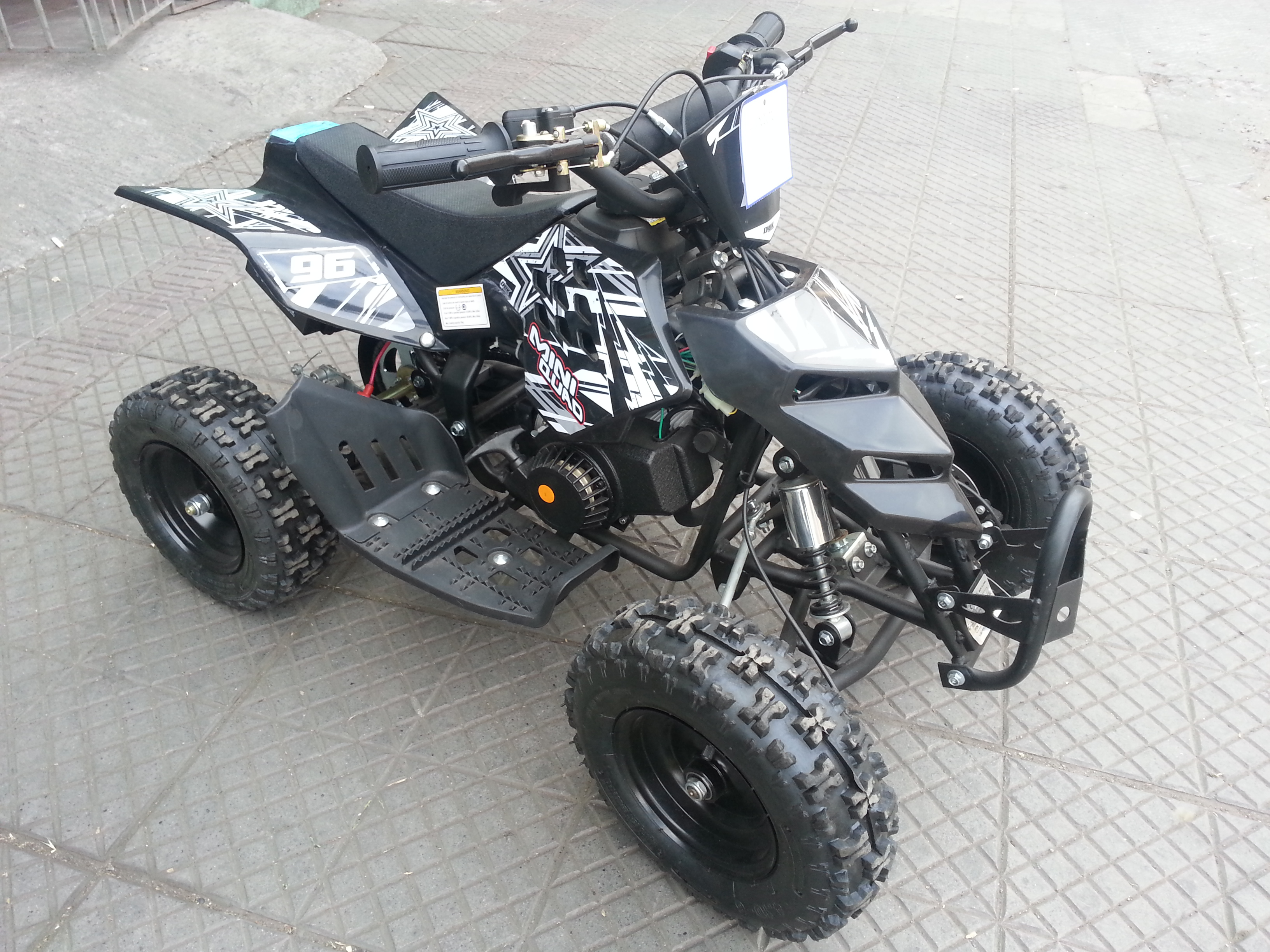Electric motorcycles and ATVs are becoming increasingly popular in Chile, as more people recognize the benefits of switching to eco-friendly transportation. This article will provide a detailed guide on how to convert your motorcycle ATV to electric, covering everything from the advantages of electric vehicles to the technical aspects of the conversion process. Whether you're an enthusiast or a professional, this guide will equip you with the knowledge you need to make an informed decision.
The demand for electric vehicles (EVs) is growing worldwide, and Chile is no exception. With its commitment to reducing carbon emissions and promoting renewable energy, the country has become a hub for innovative EV solutions. If you're considering converting your motorcycle ATV to electric, understanding the process and its implications is crucial.
In this article, we will explore the step-by-step process of converting a motorcycle ATV to electric, including essential components, cost considerations, and environmental benefits. By the end of this guide, you'll have a clear understanding of what it takes to make the switch and why it's a worthwhile investment for the future.
Read also:Unlock The Power Of Videos Full A Complete Guide To Immersive Content
Table of Contents
- Introduction to Electric Conversion
- Benefits of Converting a Motorcycle ATV to Electric
- Essential Components for Conversion
- Step-by-Step Conversion Process
- Cost Considerations
- Environmental Impact
- Legal Requirements in Chile
- Maintenance and Longevity
- Tips for a Successful Conversion
- Future of Electric Vehicles in Chile
Introduction to Electric Conversion
Converting a motorcycle ATV to electric in Chile is more than just a trend; it's a step toward sustainable living. The transition from traditional combustion engines to electric motors offers numerous advantages, including reduced emissions, lower operating costs, and quieter performance. This section will provide an overview of the electric conversion process and its significance in the context of Chile's environmental goals.
Electric motorcycles and ATVs are designed to meet the growing demand for eco-friendly transportation solutions. By converting your existing vehicle, you can enjoy the benefits of modern technology without the need to purchase a new one. This not only saves money but also reduces waste by reusing existing components.
Why Choose Electric?
Electric vehicles are gaining popularity due to their numerous advantages. Some of the key reasons for choosing electric include:
- Zero emissions
- Lower maintenance costs
- Improved performance
- Government incentives
Benefits of Converting a Motorcycle ATV to Electric
Switching to electric power offers a wide range of benefits that go beyond environmental considerations. From financial savings to enhanced performance, converting your motorcycle ATV to electric can significantly improve your riding experience. Let's take a closer look at these advantages:
Environmental Benefits
One of the most significant advantages of electric vehicles is their positive impact on the environment. By eliminating harmful emissions, electric motorcycles and ATVs contribute to cleaner air and a healthier planet. This is particularly important in urban areas where air pollution is a major concern.
Economic Benefits
Electric vehicles are generally more cost-effective than their combustion counterparts. While the initial conversion cost may be higher, the long-term savings on fuel and maintenance can offset this expense. Additionally, many governments offer incentives and tax breaks for EV owners, further reducing the financial burden.
Read also:Securely Connect Remote Iot Devices Via P2p Ssh On Android
Essential Components for Conversion
Converting a motorcycle ATV to electric requires several key components. Understanding these components and their functions is crucial for a successful conversion. Below is a list of the essential parts you'll need:
- Electric motor: The heart of your electric vehicle, the motor replaces the traditional combustion engine.
- Battery pack: Provides the energy needed to power the motor and other electrical systems.
- Controller: Regulates the flow of electricity from the battery to the motor, ensuring optimal performance.
- Charger: Allows you to recharge the battery pack using a standard electrical outlet.
Selecting the Right Components
When choosing components for your conversion, it's important to consider factors such as power output, weight, and compatibility with your existing vehicle. Consulting with a professional or experienced enthusiast can help ensure you make the right choices.
Step-by-Step Conversion Process
The process of converting a motorcycle ATV to electric involves several stages, each requiring careful planning and execution. Below is a step-by-step guide to help you through the conversion process:
Step 1: Assess Your Vehicle
Before beginning the conversion, evaluate your motorcycle ATV to determine its suitability for electric power. Consider factors such as weight, frame design, and available space for components.
Step 2: Gather Components
Once you've assessed your vehicle, gather all the necessary components for the conversion. This includes the electric motor, battery pack, controller, and charger. Ensure that all components are compatible with your vehicle.
Step 3: Install the Motor
Remove the existing combustion engine and install the electric motor in its place. This step may require modifications to the vehicle's frame or mounting brackets.
Step 4: Install the Battery Pack
Position the battery pack securely in the vehicle, ensuring it is easily accessible for charging and maintenance. Connect the battery to the motor and controller using appropriate wiring.
Step 5: Test and Fine-Tune
Once all components are installed, test the vehicle to ensure everything is functioning properly. Make any necessary adjustments to optimize performance and safety.
Cost Considerations
The cost of converting a motorcycle ATV to electric can vary depending on several factors, including the type of vehicle, the components used, and the level of customization. On average, a basic conversion can range from $2,000 to $5,000, while more advanced setups may cost significantly more.
Factors Affecting Cost
- Type of electric motor
- Size and capacity of the battery pack
- Quality of components
- Professional installation fees
Environmental Impact
Converting a motorcycle ATV to electric has a significant positive impact on the environment. By eliminating harmful emissions and reducing reliance on fossil fuels, electric vehicles contribute to a more sustainable future. Additionally, the use of renewable energy sources for charging can further enhance their environmental benefits.
Chile's Commitment to Sustainability
Chile has set ambitious goals for reducing carbon emissions and promoting renewable energy. The country's commitment to sustainability makes it an ideal location for electric vehicle adoption and innovation. By converting your motorcycle ATV to electric, you're contributing to these efforts and helping to create a cleaner, healthier planet.
Legal Requirements in Chile
Before converting your motorcycle ATV to electric, it's important to familiarize yourself with the legal requirements in Chile. These regulations ensure the safety and compliance of electric vehicles on public roads. Below are some key considerations:
Registration and Licensing
Electric vehicles must be registered and licensed like any other vehicle in Chile. Ensure that your converted motorcycle ATV meets all necessary safety standards and passes inspection before operating it on public roads.
Safety Standards
Adhere to all safety standards and regulations when converting your vehicle. This includes proper installation of components, adequate braking systems, and appropriate lighting.
Maintenance and Longevity
Proper maintenance is essential for ensuring the longevity and performance of your electric motorcycle ATV. Regular inspections and servicing can help prevent issues and extend the life of your vehicle. Below are some maintenance tips:
- Check battery levels regularly
- Inspect wiring for signs of wear or damage
- Ensure all components are securely mounted
- Follow manufacturer recommendations for maintenance
Tips for a Successful Conversion
To ensure a successful conversion, consider the following tips:
Do Your Research
Thoroughly research the conversion process and gather as much information as possible. This includes understanding the components, tools, and techniques involved.
Seek Professional Help
If you're unsure about any aspect of the conversion, don't hesitate to seek help from a professional. Experienced technicians can provide valuable guidance and ensure a safe, effective conversion.
Future of Electric Vehicles in Chile
The future of electric vehicles in Chile looks promising, with continued advancements in technology and increasing government support. As more people embrace electric transportation, the demand for innovative solutions will only grow. By converting your motorcycle ATV to electric, you're not only investing in your future but also contributing to a more sustainable world.
Innovations in Electric Technology
Advancements in battery technology, motor efficiency, and charging infrastructure are driving the growth of the electric vehicle market. These innovations are making electric vehicles more accessible and practical for everyday use.
Conclusion
Converting a motorcycle ATV to electric in Chile is a worthwhile investment that offers numerous benefits, from environmental advantages to financial savings. By following the steps outlined in this guide, you can successfully convert your vehicle and enjoy the many perks of electric transportation. We encourage you to share your experiences and insights in the comments below and explore other articles on our site for more information on electric vehicles and sustainable living.
Take action today and join the movement toward a cleaner, greener future. Together, we can make a difference!

